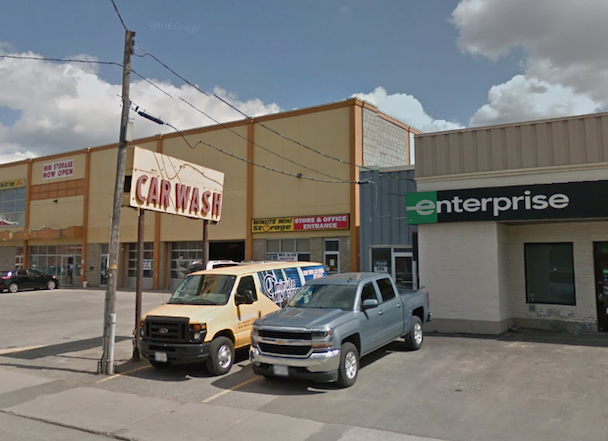Highway widening forces Gallery 101 move to Catherine St. space
By Alana Thoman
After five previous relocations in its 38-year existence, Gallery 101 is being forced to move once again after learning that its Little Italy home is being expropriated and demolished by the Ontario government ahead of bridge replacements and highway upgrades where the Queensway meets the O-Train line.
But there’s a silver lining: a new home and an expanded space awaits the gallery closer to the heart of Centretown.
Meanwhile, however, another artistic enterprise housed in the doomed Young Street building — Platform Gallery & Studios — is preparing to mark the end of its six-year-old “community” of about 20 studio artists and adjoining display space.
The latest relocation for Gallery 101 marks the sixth move since it opened in 1979. The Ontario Ministry of Transportation is purchasing and removing the Young Street building the gallery currently occupies ahead of the infrastructure rebuild.
The gallery, now moving to 280 Catherine St., has previously been located on Bank, Lisgar and Nepean streets in Centretown, as well as Fourth Avenue in the Glebe.
Gallery 101 is a non-profit arts space supported by the City of Ottawa, the Ontario Arts Council and the Canada Council for the Arts.
According to director-curator Laura Margita, the gallery is leaving its Young Street site in January, and will settle into the new location in February. The re-established gallery will officially open on March 1 with the new exhibition Republic of the Other.
Margita said she first heard about the demolition plans almost three years ago, when Kitchissippi Coun. Jeff Leiper sent an email to the Preston Street BIA. A meeting followed at St Anthony’s soccer club, where the ministry held an information session regarding planned reconstruction of the Queensway.
Brandy Duhaime, the regional communications coordinator for MTO, said the preliminary design for the Highway 417 project began in March 2013 and the “approved environmental assessment process is to replace and shorten the bridges.”
“This shortening better reflects the current and planned needs of the City of Ottawa’s light rail transit and multi-use pathways,” said Duhaime. “The replacement of these bridges is also being done in advance of the city’s future LRT stage 2 project.”
Duhaime said the ministry always attempts to find a preferred alternative that does not affect existing properties, but in this case, the building at 47 Young St. — a former industrial site — is located directly under the O-Train bridge, so “a full buy-out is required in order to move forward with this project.”
Margita said she will miss many things about the Little Italy space, including the uniqueness of the building, the Preston Street BIA’s support and neighbours Platform Gallery & Studios and Soulard Multi-Service.
“It is quite a vibrant area,” said Margita. “To me, it was a really great experiment about having a gallery in a garage and I imagined we were in Brooklyn . . . It was so fantastic.”
Although there are negatives, Margita said she is really looking forward to the new space. She said it is closer to the downtown core — making it easier to find for visitors — and has a lot more room spread over two floors, including four bathrooms rather than one, and expanded space for rehearsals and workshop.
“We are going to try and have the workshops happening all the time,” said Margita. “There will be a much bigger office so we are also going to try and grow and have a few more people working with us. We will do that with a collection of project grants and see how we can grow and become sustainable within this space.”
Michael Parkin, one of the founders of Platform Gallery & Studios, said they received notice from the ministry that the building was being considered for expropriation about 18 months ago.
He said it may be possible to hold onto the space through January, but a number of artists have already moved out, so he said he believes the doors will close at the end of December.
“I did hear it could be as long as March until the building comes down … but you can only deal with so much uncertainty,” said Parkin.
Parkin said Platform was founded in 2011 after he, Andrea Rosen and Ted Willis transformed an electrical supply warehouse into a space with separate studios by putting up a series of walls. Parkin said about 20 artists are losing their studio space due to this demolition. He added that he feels a real sense of loss because Platform became a community.
“We have put a lot of time and effort into this place,” said Parkin. “There isn’t a person who works here that I wouldn’t be willing to spend time with out of the studio, and we learn from each other, we can inspire each other and that’s going away — and we don’t have a replacement for that. So there is certain sadness involved.”
Parkin said they have looked at 10 different spots in places such as Chinatown and Little Italy, but have not found anything suitable.
“Essentially it is breaking apart,” said Parkin.

